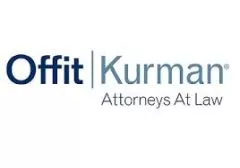- within Real Estate and Construction topic(s)
- in Europe
- with readers working within the Technology and Property industries
- with readers working within the Technology and Property industries
- within Real Estate and Construction, Privacy, Food, Drugs, Healthcare and Life Sciences topic(s)
- in Europe
A federal class action lawsuit1 is alleging that monthly pest fees and community fees are unlawful attempts to shift landlord obligations to tenants, in violation of the Virginia Residential Landlord and Tenant Act (VRLTA) and the Virginia Consumer Protection Act (VCPA).
If the plaintiffs are successful, the case could trigger industry-wide consequences and result in substantial liability for property owners and managers who use similar fee structures.
Initial Recommendations
- Evaluate all recurring fees, such as pest control, trash, amenity, and community fees to determine whether they relate to obligations that are legally the landlord's responsibility under Virginia law (e.g., habitability and maintenance of common areas). Distinguish between charges for required services and those for optional or additional tenant benefits.
- Remove or recharacterize unlawful fees. Eliminate any separate fees that relate to non-waivable landlord duties. Where appropriate, incorporate the cost of pest control and common area maintenance into the base rent rather than charging them separately.
- Clearly define any remaining fees. Avoid using overly broad or ambiguous language such as "programs deemed necessary by ownership," which may be interpreted as deceptive or misleading under consumer protection laws.
Further Details and Legal Background
Plaintiffs' Allegations
Plaintiffs allege that landlords cannot charge tenants for costs of
pest control, trash disposal, or common area maintenance.
Plaintiffs allege these duties are non-waivable
landlord obligations under Virginia Code § 55.1-1220, and that the
charging of pest control, trash disposal, and other common area
maintenance fees are deceptive representations in violation of Virginia Code § 59.1-200(14).
Legal Basis
- Virginia Residential Landlord and Tenant Act (VRLTA)
- Virginia Code § 55.1-1220(A): Requires landlords to maintain pest-free premises and clean, structurally safe common areas. These duties may not be waived through the lease.
- Virginia Consumer Protection Act (VCPA)
- Virginia Code § 59.1-200(14): Prohibits misrepresentation or deception in consumer transactions, including residential leases. The lawsuit claims tenants were misled into believing that payment of the pest and community fees was required to receive services already required under Virginia law.
Analysis
Importantly, Virginia Code § 55.1-1220 does not explicitly
prohibit landlords from charging for pest control and trash
disposal fees, if such fees are authorized under the lease
agreement. Plaintiffs are, therefore, making allegations based on
implication and a broad reading of Virginia Code § 55.1-1220.
It is not clear how the court may rule on the plaintiffs'
allegations. Regardless, plaintiffs' allegations have merit
based upon landlords' obligations as defined under Virginia
Code § 55.1-1220.
Potential Impact
This lawsuit signals an aggressive new approach to enforcing landlord-tenant law under both the VRLTA and VCPA. This case could set precedent for whether bundling landlord obligations into fees is inherently deceptive under the VCPA and unlawful under the VRLTA. Further, a ruling in favor of plaintiffs could lead to a wave of similar class actions across Virginia and other states.
Offit Kurman will continue to monitor the case and provide further recommendations once the court issues a ruling.
Footnote
1 Valencia Rios v. Belvedere NRDE, LLC and Pegasus Residential, LLC (E.D. Va. No. 3:25-cv-474)
The content of this article is intended to provide a general guide to the subject matter. Specialist advice should be sought about your specific circumstances.






